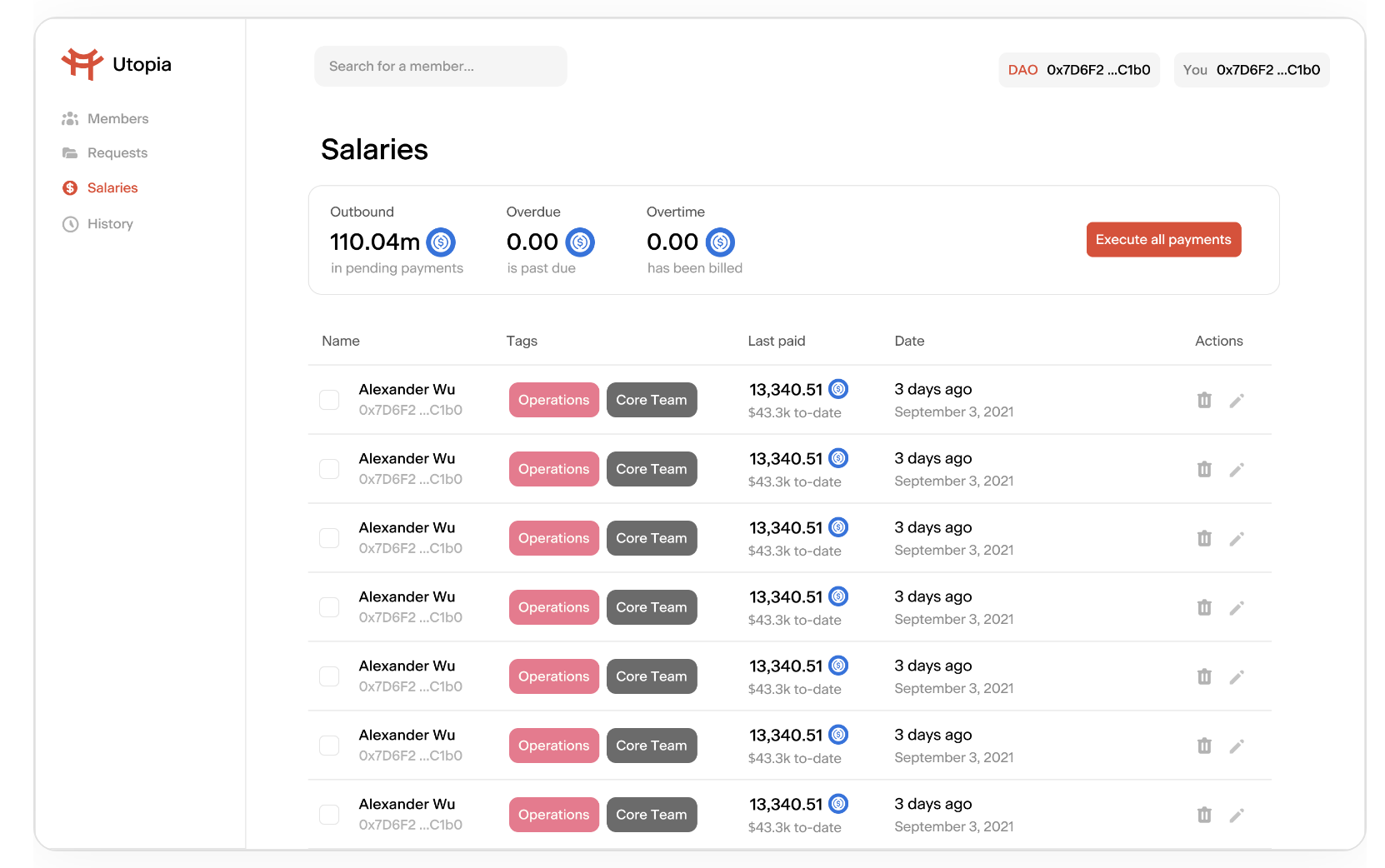Decentralized autonomous organizations, or DAOs, are all the rage at the moment. We’re seeing explosive growth in this sector as people experiment with building companies on top of tokens and smart contracts. And where new organization types bloom, so does the need for infrastructure.
Utopia Labs is a team of four founders who met on Discord and Twitter over the past few months — a story that is getting increasingly familiar in the crypto-driven web3 space where everything is moving incredibly fast at the moment.
The CEO Kaito Cunningham recently worked at crypto firm M31 and is in the On Deck Catalyst program. Utopia’s co-founders Pryce Adade Yebesi, Alexander Wu and Jason Chong also have held a scattering of tech builder background gigs, from Facebook internships to LunchClub to Microsoft. The collective interest in DAOs, though, was what brought them together to begin chatting and eventually building for the space.
If you’re not familiar with the DAO explosion happening, what we’re seeing is communities come together around a thesis that in the past may have required an LLC or C-corp structure in order to execute instead turning to blockchain solutions. Basically, company structure governed by a smart contract instead of legacy legal structures. Some current estimates put the value governed by DAO treasuries at over $6 billion, up from $1 billion earlier this year.
If you plot the curve, you’ll see the potential for growth is pretty enormous. And with the vast majority of DAOs operating across international boundaries on a global scale, there is a big need for infrastructure build out that takes over where the contract ends, namely in areas like payroll, expenses, token distribution and HR management.
Utopia Labs is building out a stack of infrastructure tools for DAOs and they’re starting with the payments bit. They’ve raised $1.5 million from a group of investors to begin hiring a full stack engineer and front-end engineer.
The round was led by Kindred Ventures, which has invested in other bleeding-edge crypto platforms like Zora and Bitski. Other investors participating include Syndica DAO, 4th Revolution Capital Ascend Venture Capital and angels like Trevor McFedries at Brud, Alex Zhang at Friends With Benefits (another major DAO), Tyson Battistella from Zora, Anirudh Pai at On Deck, Colin Goltra at Binance, Gabby Dizon from YGG, Jason Choi from Spartan Fund, Jeff Weinstein from Stripe, Junaid Hassan and several others.
If all of this sounds incredibly bleeding edge, it is. The team literally founded the company earlier in September — yes, the month that we are at the end of currently. They saw the opportunity to build out in this space that has energized the web3 space and dove in.
Many DAOs pay members in their own tokens, increasing ownership stakes to provide members with an opportunity for greater rewards down the line or immediate liquidity. Utopia is building right on top of Gnosis SAFE, the financial core of most DAOs. The V1 product is focused on member payments and invoice workflows.
The vast majority of DAOs are operating token distribution and payments based on raw dumps of data. As the saying goes, where you see a CSV, there’s a business opportunity.
The team says they’ve built invoices and reimbursements workflows so that DAOs can receive, pay out and manage invoices and reimbursement requests. They’ve also built all-in-one transactions to allow DAOs to batch payments in one transaction across multiple people and coins.
Next up is financial analysis and accounting to attach labels and metadata to payments in order to avoid manual accounting via Etherscan dump.
The forward-looking roadmap includes traditional fiat currency services, cross-chain DAOs, real-world compliance workflows and DAO ecosystem partnerships.
The world of DAOs is currently on fire, with dozens of viable organizations that have significant momentum — but not nearly enough infrastructure to make them truly efficient. It’s a truly interesting and diverse landscape that has come a long way since The DAO nearly derailed Ethereum back in 2016. Today’s DAOs are more company scale than network scale but are moving faster and building cooler things than containers for money.
“On-chain payroll make DAOs truly crypto-native,” says Cooper Turley, a co-founder of FWB and full-time DAO explorer. “In a world where dozens of members are contributing from every corner of the world, automating salaries, incentives and bounties are the only way in which DAOs can scale.”
In addition to what Utopia Labs is doing, Multisafe, Commonwealth, Parcel and Colony are all names to watch in the DAO infrastructure space.
































Comment